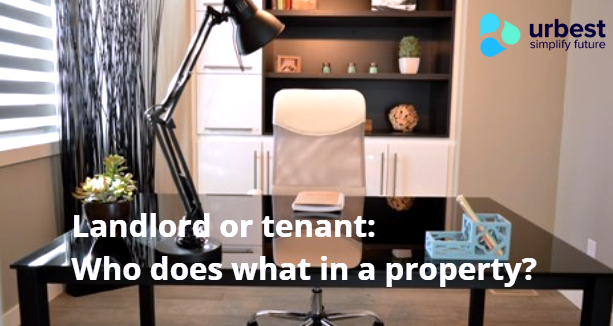Landlord or tenant: who does what in a property?

When renting a property, it's important to understand the obligations of both parties. Whether you're a landlord or a tenant, you have responsibilities that must be respected to ensure a pleasant living environment that complies with current standards.
When renting a property, it's important to understand each party's obligations. Whether you're a landlord or a tenant, you have responsibilities that must be respected to ensure a pleasant living environment that complies with current standards.
In this article, we'll review the main obligations of both landlords and tenants in terms of maintenance, upkeep, and compliance. We'll also look at the rules of communal living that govern relations between landlords and tenants. Whether you're an owner or a tenant, this article will give you a better understanding of your rights and obligations, so that you can live peacefully in your home.
The owner's obligations
Ensuring the safety and health of the home
Ensuring the health and safety of your home is one of the main responsibilities of the owner, who can call on the services of an architect. The owner must ensure that the dwelling is in good condition and presents no danger to the health or safety of the occupants. This includes carrying out any work necessary to prevent the risk of fire, electrocution, or carbon monoxide poisoning. The landlord must also ensure that the property is free from any form of insalubrity, such as the presence of mold, insects, or rodents. In the event of a problem, the tenant must promptly report any defects or potential hazards to the landlord, so that the latter can take the necessary measures to ensure the safety and health of the dwelling. Tenant request tracking software helps structure exchanges between tenant and landlord.
Carry out the work required to keep the property in good condition
The landlord is also obliged to carry out any work required to keep the property in good condition. This may include repairing or replacing defective equipment such as heating, plumbing, electricity, windows, and doors. The landlord must ensure that the dwelling remains in good condition so that the tenant can live there in pleasant, comfortable conditions. If the tenant notices a defect or malfunction in the property, he or she must report it to the landlord, who is then obliged to carry out the necessary work as quickly as possible.
Providing compulsory equipment (heating, water, gas, etc.)
When it comes to renting or selling a property, it's important to provide compulsory utilities such as heating, water, and gas. Heating must be able to maintain a comfortable temperature in all rooms, especially during the colder months. Water must be potable and available in sufficient quantity to meet the daily needs of the occupants. Finally, gas must be installed safely and in compliance with current regulations. Providing these facilities not only ensures occupant comfort but also meets legal requirements and may avoid legal problems in the future.
Respecting standards of decency
It's essential to comply with standards of decency when renting or selling a property. These standards include criteria such as safety of electrical installations, thermal and acoustic insulation, cleanliness and hygiene, accessibility for people with reduced mobility, and many others. Compliance with these standards guarantees occupants a decent, safe home that meets their everyday needs. What's more, compliance with these standards is also a legal obligation for property owners and sellers.
Taking charge of major repairs (roof, facade, etc.)
When you own a home, it's important to take responsibility for major repairs such as roofing, facades, and foundations. These elements are essential to the solidity and safety of the building. In the event of defects or damage, it's imperative to act quickly to avoid greater damage and higher costs in the future. By law, owners are responsible for maintaining and repairing the common areas of condominiums, as well as the private areas of their own homes.
It is therefore important to budget for this work, and to call in qualified professionals to carry out the necessary repairs.
To give you a general idea, here's a rough estimate of renovation costs for a 50m2 apartment:
- Complete kitchen refurbishment: €5,000 to €15,000
- Complete bathroom refurbishment: €5,000 to €15,000
- Replacing floors: €1,500 to €5,000
- Renovation of walls (paint, wallpaper, plaster): €1,500 to €4,000
- Electricity: €1,500 to €3,000 Plumbing: €1,500 to €3,000
- Insulation work: €1,500 to €4,000
- Roof or facade renovation if you're renting a small house: €10,000 to €30,000
Depending on the scope of the work and the quality of the materials chosen, the total cost of renovation can vary considerably. It is therefore advisable to consult several professionals to obtain precise, detailed estimates, and to leave a safety margin for unforeseen circumstances.
The tenant's obligations
Taking care of the property and keeping it in good condition
As a tenant, you are responsible for taking care of your property and keeping it in good condition. This means respecting the fixtures and fittings, keeping the premises clean, and ensuring that household appliances are used properly. If any damage is found, you must report it to your landlord and take the necessary steps to repair or replace it. It's also important to respect the terms and conditions of your lease, particularly concerning occupancy, subletting, and payment of rent and utilities. If you fail to comply with these obligations, your landlord may take legal action to enforce his or her rights and obtain compensation for any damage suffered.
Maintaining the property (minor repairs, cleaning, etc.)
As a tenant, you must take care of the day-to-day upkeep of the property you live in, by carrying out minor repairs and keeping the premises clean. You may need to replace light bulbs, change smoke detector batteries, or unclog drains. What's more, it's important to keep the property in good condition, by regularly cleaning the property and ensuring that all fixtures and fittings are clean. If you're in any doubt about what repairs to carry out, don't hesitate to ask your landlord or property manager for advice or recommendations.
Respecting the building's internal regulations
You are required to comply with the building's rules and regulations. These rules may include provisions on noise, cleanliness of common areas, waste management, or use of common spaces. By respecting these rules, you contribute to the well-being of all building occupants and avoid conflicts and tensions. In the event of non-compliance with the internal regulations, the owner or co-owners association can take legal action to enforce compliance and obtain damages.

Informing your landlord of any problems or necessary repairs
Finally, you are required to inform your landlord of any problems or repairs that need to be carried out on the property you occupy. This could include electrical, plumbing, or heating problems, or damage to the property. It's important to report these problems promptly to prevent them from getting worse, and to enable the landlord to carry out the necessary repairs as quickly as possible. In addition, you are obliged to allow access to the property to enable the work to be carried out. If you fail to meet this obligation, the owner can take legal action to obtain compensation for the damage suffered.
Do you own several properties with a lot of work to do? Try out the free application with your service providers.
